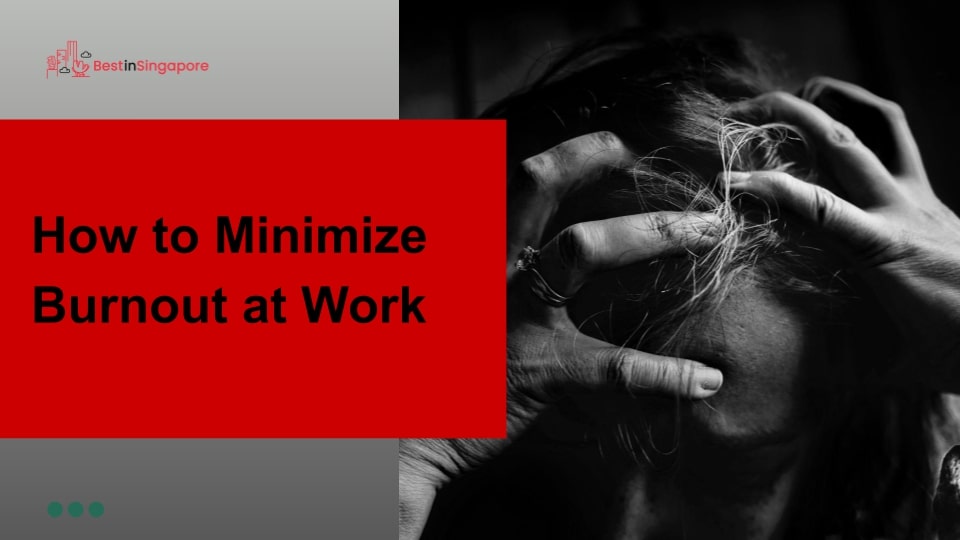How to Minimize Burnout at Work
Burnout is real, and everyone who works can be a potential victim of it. It’s the result of continuous exhaustion of the mind and body with no motivation or rest on the horizon.
But there are ways to minimize burnout at work which we’ll examine closely in this post. We’ll also take a look at some of its main causes and how to address them.
Get proper sleep, eat well, exercise.

If you stay up all night and don’t get proper nutrition, you’ll be burnt out even before you start working. So learn how to get better sleep and see a professional to treat disorders like sleep apnea ASAP.
To be better equipped to deal with the day, your body needs proper nourishment to resist the ravages of daily anxiety and stress. If you aren’t sure where to start, a nutritionist can guide you on the right kind of food to eat based on your health requirements and lifestyle.
And if you don’t have the time or inclination to go to the gym, a couple of hours of yoga classes every week can reset your mind and body and keep stress away.
Schedule work hours and stick to them.

It’s great to have flexible hours for work because it allows you to rest when you need to. However, without proper time management, work could spill over onto weekends and wreak havoc on important plans and precious family time.
So plan a work schedule ahead of time and stick to it as much as possible. Log off when you have to and do relaxing activities with your family, friends, or by yourself.
You can consider doing work in coworking spaces in Singapore so you’ll be more conscious of the time (and money) you put into work daily.
Keep communication lines open between you and your employer/client.

The best career coaches in Singapore will tell you that good communication is key to proper work-life balance. So if something is bothering you at work, there’s no reason to keep it from your employer or immediate superior.
Keep communication lines open with apps installed on your smartphone and other work devices. Use project management software and platforms that can help make your work more organized and easy to understand.
And if something in your personal life needs attending to immediately, then, by all means, communicate this with the people at work. They should understand and give you the time to address it.
Don’t pile too many tasks on your plate at once.

You set up a home office because you want to segregate and compartmentalize work from the rest of your home life. But if you don’t do the same for the workload itself, then you’re setting yourself up for a major burnout somewhere down the line.
There could be seasons when there seem to be more deadlines and work piles up. But if this keeps happening because you can’t say no to colleagues and superiors about taking on more work, then you’re really doing it to yourself.
So stick to work you can manage and accomplish on a daily or weekly basis. The best life coaches will tell you to do this in all aspects of your life, as well.


